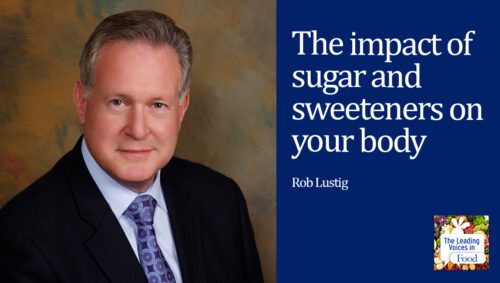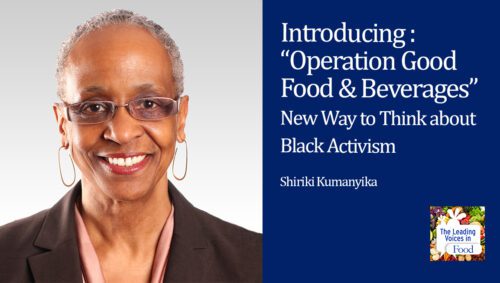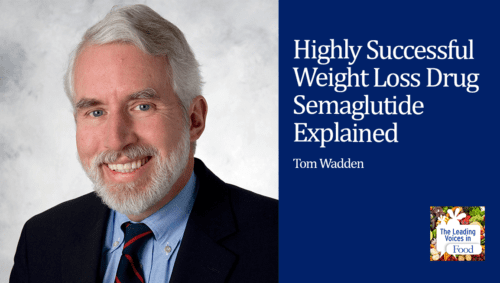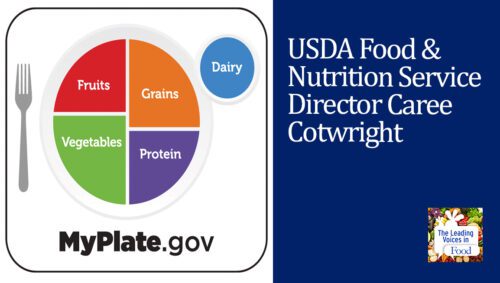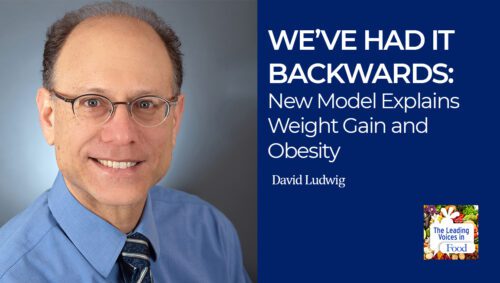The Leading Voices in Food
E73: Weight Stigma 101 with Rebecca Pearl
People who experience weight discrimination are more likely to gain more weight over time than people with obesity who don’t describe these kinds of experiences. Weight bias, stigma and discrimination have received more and more attention among researchers, but also in the public. Think, for example, of the term “fat shaming.” Among the researchers doing path-breaking work in this area is Dr. Rebecca Pearl at the Perlman School of Medicine. Her research focuses on weight bias and its associated outcomes in patients with obesity.
Subscribe: Apple Podcasts | TuneIN | Google Podcasts | SoundCloud | PocketCasts | Radio Public
Tags: Addiction & Food | Childhood Obesity | Diet & Nutrition | Eating Disorders | Weight Stigma |

Rebecca Pearl, PhD, is an Assistant Professor of Psychology in Psychiatry at the Perelman School of Medicine at the University of Pennsylvania. She received her BA from Duke University and her PhD in clinical psychology from Yale University. She completed her predoctoral psychology internship at McLean Hospital/Harvard Medical School and her postdoctoral fellowship at the Penn Center for Weight and Eating Disorders. Her research focuses on weight bias and its associated health outcomes in patients with obesity. She also investigates strategies for reducing weight bias and its internalization. Her work has been recognized with awards from The Obesity Society and the American Psychological Association and is currently supported by a K23 mentored patient-oriented research career development award from the National Heart, Lung and Blood Institute of the NIH.
Interview Summary
Rebecca, I’m very grateful that you could join us, and let me start with a fundamental question. What is weight bias? How do you define it?
Well, Kelly, first, thank you so much for having me, and it’s a real treat to speak with you about this topic considering that you are one of the first people to really draw attention to this issue, especially in the scientific context.
So when we’re talking about weight bias, we’re thinking about negative attitudes toward people because of their weight, so people with overweight and obesity, and these negative attitudes are rooted in some common stereotypes, such as that people with obesity are lazy, they don’t have any self control, they’re unhealthy or don’t care about their health. They’re greedy, or might even be less intelligent than other people. And then there’s also a strong sense of blame that’s put on people because of their weight, due to this belief that weight should be entirely within an individual’s control. So when people are perceived as not being able to control their weight, they’re perceived as being a weak person, or having weak character, or having a failure of personal responsibility. So actually being perceived as an irresponsible person because they have a higher body weight, and these negative attitudes and stereotypes and this blame lead people with obesity to face societal stigma, experiences of weight-based teasing or bullying, discrimination or social rejection, or just generally being devalued by society.
And these consequences can be pretty severe, can’t they?
Absolutely. From a socioeconomic level, when people are denied employment opportunities or denied promotions because of their weight, that can affect wages and socioeconomic advancement. There are also educational disparities that can be attributed to weight bias and weight-based discrimination, and then there are also a number of health disparities that might be in part explained by experiences of weight discrimination or stigmatization.
So we’ll come back to the health issues in just a minute, but I want to ask you about a particularly important area that you’ve worked on, weight bias internalization. You and others have documented the impact on people, but you’ve looked at this particular issue in great depth about internalization. Can you tell us what you mean by that?
People can experience weight bias from other people, but they can also apply it to themselves. So weight bias internalization is sometimes called self-directed stigma, and this occurs when people with obesity are aware of the negative attitudes and stereotypes about people with a higher body weight. People with obesity might come to also believing that they are a weak person, or lazy, or a failure, or less worthy than other people, so it’s really how stigma can get under the skin, if you will, when people are devaluing themselves because of their weight.
And is there variability in how much people with obesity do internalize these negative messages? And what effects does that have when somebody does?
Not everybody with obesity internalizes weight bias, but given how pervasive the societal messages are about weight, it’s understandable when people do internalize these messages. There’s certainly a significant minority of people who have high levels of internalized weight bias, and then many more people who internalize these messages, at least to some degree. A lot of the same health effects that we see from experiencing discrimination from other people, we’re also seeing independently associated with this internalized weight bias, and some studies actually suggest that weight bias internalization, above and beyond the experiences of weight bias, might be a stronger predictor of some of the negative health outcomes.
So let’s loop back to that issue of weight bias and health. And one could imagine that if you internalize the bias and/or you’re just subjected to all these things happening out there in society, and it affects your wages, your success in education and all these other kinds of things, that it could affect your health through things like depression and stress. Are there other ways that weight bias might affect health?
So those are the big ones. We do know people have higher rates of depression when they’re reporting experiences of weight discrimination. Also more anxiety disorders, which makes sense too if you think about when people are anticipating rejection or anticipating discrimination, that that is stressful and might also increase anxiety, especially in social interactions. We also know that substance use disorders are higher in people who have perceived weight discrimination.
And then the stress issue is a big one that more and more researchers have been looking at. There’s a physiological stress as well as a psychological distress that might affect health outcomes. So if we see changes in cortisol, blood pressure, other markers of inflammation, and those independently are risk factors for cardiovascular disease, but those can also affect people’s appetite. So cortisol, for example, is a hormone in relation to stress that can increase appetite, so people might also have behavioral responses to these experiences or even just the internalization of weight bias that’s in part driven by physiological responses of eating more food because their body is in a state of stress. So many of us eat as a way of coping with negative emotions, as a way of soothing ourselves or finding comfort. And so for a lot of people who experience weight bias, this is a common way of coping.
People also might avoid engaging in physical activity when they are concerned about how others might be perceiving them because of their weight. Especially in public settings like in a gym, they might feel intimidated or just very self-conscious. The patients I’ve worked with have described negative comments that they’ve received in fitness type settings, so that would understandably lead them to want to avoid being in those settings. And so that combination of eating more food in response to these experiences as well as avoiding physical activity can actually lead to more weight gain over time.
And the last aspect of health that is really important to highlight is how weight bias can play out in health care. So many patients describe having humiliating or disparaging experiences in health care settings, and this might not be intentional on the part of the physician. They might not even be aware of the bias. So for example, a patient coming in for a health concern that’s completely unrelated to weight, and the physician solely focusing on the need to lose weight. That can be a very frustrating experience for a patient that might make them want to avoid even bothering to go to the doctor’s office the next time they have any health concern. And so if patients are avoiding health care settings, then that’s also setting up a higher risk for missing health problems early or for missing out on preventative healthcare services. And the quality of care, too, can also be influenced by weight bias.
So Rebecca, what strategies do you think might be effective for reducing weight bias?
There are some structural level interventions that have been showing promise. So these interventions include changing media portrayals to reduce the stereotypical or stigmatizing images, and news content in stories about obesity. Other interventions might include policies, for example, legislation to prohibit weight discrimination. In most cities and states in the United States, with the exception of a few cities and one state, the state of Michigan, it is entirely legal to discriminate against hiring or promoting someone because of their weight, so policies to address that could be very effective at reducing instances of discrimination, as well as anti-bullying laws that specifically incorporate weight as a reason that bullying is prohibited. And then other policies at institutional levels within workplaces or educational settings or healthcare settings to promote awareness of body size diversity and increase weight sensitivity by incorporating more education about obesity, especially in healthcare settings, might be helpful as well.
Obesity is tied to biological factors, to environmental factors, and it’s not a matter of personal weakness or a failure of personal responsibility. There are so many complex factors that influence a person’s weight. Some of that kind of education might be helpful for increasing understanding and reducing bias.
Another principle that’s been looked at is the idea of social consensus as well. Weight is a very socially acceptable thing to tease people about or to stigmatize people for, and so if we could figure out ways, whether it would be through campaigns or just individual actions of making it clear that it is not acceptable to tease someone or make someone feel badly about themselves because of their weight, then that could also go a long way in shifting societal attitudes and behaviors.
Well, thanks for those ideas. They’re really very promising roads to go down. So let me ask one final question. Is there a way to reduce the internalization of these messages in people with obesity?
That’s a question I’ve been very interested in in the past few years, and I do want to emphasize that we need to be, first and foremost, trying to improve societal attitudes and behaviors to try to prevent experiences of weight bias or prevent people from internalizing these messages. And for the people who have already internalized these messages, I think it’s really important to develop strategies to help them cope with this and to try to retrain their brains or undo some of this internalized weight bias.
So some of the strategies that myself and my colleagues have been testing draw upon psychological principles and psychological treatments that have been used for things like depression and anxiety, and trying to adapt those strategies specifically for targeting internalized weight bias. So this might include cognitive and behavioral skills like examining myths and stereotypes about weight and really digging into what is the evidence that would support a stereotype like people with obesity are lazy? And what are some of the points of evidence that might poke holes in that idea, or to really challenge the evidence against this idea?
Other strategies might include learning how to speak up for oneself, so promoting assertiveness skills. If someone does make a comment to you about your weight, how do you respond? What do you say? How do you have a conversation with a loved one to ask them to stop making comments about what you’re eating or what your weight is at the dinner table? And other skills like increasing self-compassion, improving body image, these are all strategies that we’re looking at to see if they could have an effect on reducing weight bias internalization.
And the last potential strategy might be engaging in advocacy as a way of feeling empowered to do something about this social injustice in the world, that that might help people feel better about themselves and also help to combat this bigger problematic issue in society.

